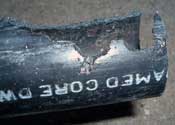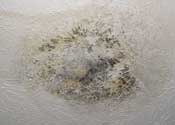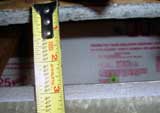Welcome to Urban Wildlife Control!
We are a nuisance animal removal company that serves the greater Atlanta area. One of the most common pests found inside Atlanta homes are rats.
Listed below are some of the most frequently asked questions about rats, their habits and rat pest control. If you are an Atlanta area resident and need to hire a professional, feel free to contact us, by phone for an estimate on our rat pest control service. Not sure what type of rodent you have? Go to our Rodent Control FAQ’s page for more information.
What exactly is a rat?
Rats make up the largest single group of mammals on earth, an estimated one-third of the earth’s total mammal population.
Several kinds of rats and mice are found around the United States. However, only the Norway rat, the roof rat, and the house mouse are common pests found around farms and homes. They are referred to as “commensal rodents” because of their need to live with humans.
Rats belong to the order of Rodentia. Rats are short-bodied rodents, usually having a pointed muzzle, long slender, almost hairless tail and dexterous forepaws.
The term rat usually refers to the two most common nuisance rat pest species, the Norway rat and the Roof rat. Both species originated in Asia, but have spread throughout the world by human travel overseas. They both belong to the genus Rattus, which includes 51 species.
The average life span of a rat is 2 years. Rats have poor eyesight and are colorblind. They primarily see light, shadow and movement. They do have very developed senses of hearing, smell, touch and taste. Their hearing is ultrasonic.
Can rats get into my attic?
Yes. In fact, it is a very common rat pest problem for atlanta residents.
What types of damage do rats cause in an attic?
The main problem rats present, other than the noise they create and diseases they carry is the possibility that they will chew electrical wires creating the potential for a structure fire.
Other damage includes: Insulation damage thereby decreasing the thermal efficiency of your home. Rats may also cause water damage from chewing on roof shingles, water pipes and fascia boards.
Should I use poison for rat pest control?
If you are having a rat control issue outside of a large commercial building poisoning may help reduce the number of rats present. If you are a home owner, we recommend you DO NOT use poison baits for rat pest control due to the risk of rats dying inside your home, causing an odor problem.
I am hearing noises. How can I tell if it is, in fact, rats?
Rats are nocturnal . So if you are hearing chewing and shuffling in the attic or walls, at night, chances are you may have a rat problem. Noises at night may also indicate flying squirrels, raccoons or another intruder.
How many rats can possibly be living in my home?
Rats are colonizing rodents and the number of rats present in your home usually depends on how long the problem has been present, the number of rats can be in the double digits.
I live in the greater Atlanta area and have tried other companies in the past, how can Urban Wildlife Control help me with rat pest control?
Urban Wildlife Control uses an effective, 4 step, rat pest control process to rid your home or office of unwanted rat pests.
Inspection
Urban Wildlife Control will first inspect the roof line, attic, crawl space, basement, etc. looking at damage, droppings, and nesting sites to determine the problem animal is indeed a pest rat (and not squirrels, raccoon or opossum). Urban Wildlife Control will then determine how the animals are gaining access to the building. Once we locate point(s) of entry we will also locate future vulnerable areas that may need to be reinforced.
Trapping
Rat trapping takes place in the attic, basement and crawl space of the building. Traps are set wherever activity is found.
Exclusion
This step involves “rodent proofing” all the entry points identified during the initial inspection. This process is essential to solving the rat pest control problem long-term. Reinforcing vulnerable areas, such as a construction gap , is another component in proper “rat proofing”.
Deodorizing and Disinfecting
After the pest rats have been trapped and the exclusion work is complete, Urban Wildlife Control offers deodorizing and decontamination services. This service eliminates the rat odors and the bio hazardous contamination that may be present in your home.
Deodorizing and decontamination involves applying an organic enzyme and a hospital grade disinfectant. An atomizing sprayer “fogs” the area and breaks down rodent odors created by urine and other excrement.
Epoleon NnZ is a catalytic deodorizer that is nontoxic and non-hazardous. It has no fragrance. NnZ can react with animal odors that are embedded in attics, crawlspaces, etc. NnZ reacts with dead animal odors, skunk smell and other organic odors. It can eliminate acidic and neutral odors such as putrefied oils. NnZ contains an emulsifier for removal of the rats’ body oil.
BBC is a cleaner and disinfectant designed for institutional use such as hospitals and nursing homes where controlling the hazard of cross-contamination is priority one. This product is effective against staphylococcus arous, salmonella choleraeuis, an psuedomonas aeruginosa and pathogenic fungi.
This step is necessary because the bio-hazard and odor of rodents coming from an attic is a signal to other animals that your home is a safe haven for them.
Learn more about our rat removal service.





